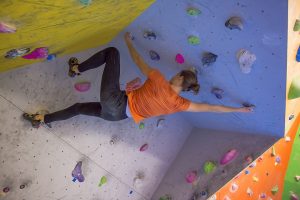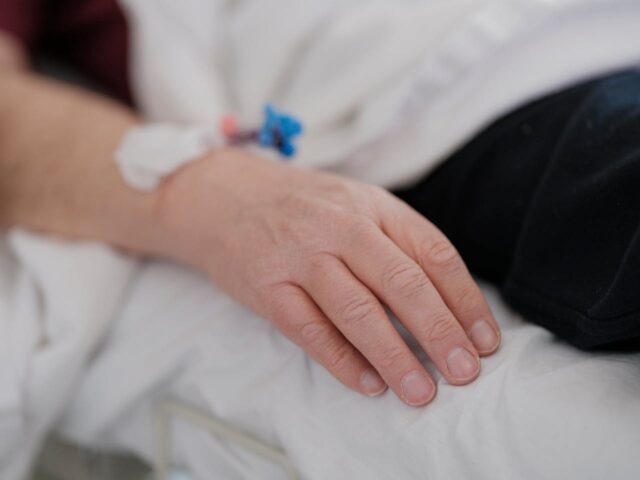Indoor Rock Climbing Accidents
Find Out Your Legal Rights
Austin Premises Liability Attorney Explains Gym Accidents
 Indoor rock climbing has become increasingly popular in Austin and across Texas both as a recreational activity and a form of regular exercise. While rock climbing can be a healthy sport for people of all ages and fitness levels, it can also lead to serious injuries if the gym or facility owner neglects safety standards and precautions. Inadequate harnesses, lack of padding and poor employee training can all cause accidents. Falling from the rock wall is among the most common and costly kinds of accidents at these centers. However, slip and fall accidents in the gym facilities, lacerations from broken equipment and injuries from line entanglement can also cause severe damage to climbers.
Indoor rock climbing has become increasingly popular in Austin and across Texas both as a recreational activity and a form of regular exercise. While rock climbing can be a healthy sport for people of all ages and fitness levels, it can also lead to serious injuries if the gym or facility owner neglects safety standards and precautions. Inadequate harnesses, lack of padding and poor employee training can all cause accidents. Falling from the rock wall is among the most common and costly kinds of accidents at these centers. However, slip and fall accidents in the gym facilities, lacerations from broken equipment and injuries from line entanglement can also cause severe damage to climbers.
If gym negligence causes your injuries, then you may be entitled to compensation through a premises liability claim. In some cases, an attorney can help you file a claim even if you signed a liability waiver before climbing. Austin premises liability attorney Aaron Allison has experience taking on negligent rock climbing gyms and other recreational facilities that do not adhere to safety standards. He investigates gym accidents thoroughly and stands up for victims’ rights when business owners fail to make fair settlement offers. He can also scrutinize liability waivers and other paperwork you may have and inform you of your legal rights in a free consultation.
What are the Most Common Causes of Rock Climbing Accidents?
Indoor rock climbing accidents may occur due to any negligence on the part of the gym owner, operator or employees. The greatest potential danger associated with rock climbing is the height to which participants may climb. Any problem with the equipment, training or employee can cause a possibly deadly fall. Some of the most common causes of indoor rock climbing accidents include:
- Defective or worn equipment. Employees of rock climbing facilities should regularly inspect the ropes, harnesses and other equipment to ensure it is sound. Otherwise, the gear may break, resulting in a fall or other accident.
- Lack of equipment. Sometimes certain safety equipment may be missing altogether. This may include padded safety mats, helmets and other gear.
- Poor training. Rock climbing requires basic instruction so that participants understand what to do and how to use the gear. Lack of training can cause a climber to fall or sustain other injuries.
- Employee negligence. In many cases, gym employees act as belayers, which means they are responsible for ensuring a climber’s safety rope is taut and for catching a climber in the event of a fall. Employee negligence or error can result in a failure of these safety measures, resulting in serious injuries.
- Dangerous facilities. Like all gyms, rock climbing establishments must maintain reasonably safe premises for visitors even when they are not climbing. Dangerous conditions, such as slippery floors or loose railings, can cause slip and fall accidents or other injuries.
- Falling objects. If a climber or employee drops equipment or other objects from the top of the wall, then others below may sustain injuries.
Can I Still File a Claim If I Signed a Waiver Before Climbing?
Most gyms and rock climbing facilities require visitors to sign a liability waiver before using or even entering the climbing area. These waivers typically detail potential risks of climbing and state that you cannot hold the business accountable for injuries you may sustain. However, these waivers are not enforceable all the time. For example, if your rock climbing injuries resulted from employee negligence or gross negligence, then you may still be able to collect compensation.
Gross negligence occurs when an individual creates or allows conditions that are likely to cause injury. For example, if your climbing harness breaks due to a product defect, you may have a product liability claim against the manufacturer and the climbing gym.
Often, gym owners or employees will try to avoid liability after an accident by citing the liability waiver. However, this may not be true. Therefore, you should always check with a premises liability attorney on your own after a gym injury. A lawyer can examine the language of the waiver and consider the circumstances of your accident. Then, you can get an impartial legal opinion about your options for recovery.
Hurt While Climbing? Austin Premises Liability Attorney Offers Free Reviews
If you or a loved one sustained injuries in an indoor rock climbing accident, then you may have grounds for a premises liability claim. Austin personal injury lawyer Aaron Allison offers free initial consultations so that you can learn your options under Texas law. He can examine your situation and review the liability waiver.
Contact our Austin law firm today to schedule your free case review today.
Free Case Review
Not Seeing What You’re Looking For? We Also Help With:
- Workers Compensation
- Construction Accidents
- Uninsured Employers
- Motor Vehicle Accidents
- Personal Injury
- Slip and Fall Accidents
- Back and Spinal Cord Injuries
- Spinal Injury at Work
- Dog Bites
- Head and Brain Injuries
- Injuries to Children
- Medical Malpractice
- Premises Liability
- Product Liability
- Wrongful Death
Back & Spinal Cord Injury News
Austin University Helps Heuro Patients Walk Again
Paralysis is a devastating condition that is often permanent. It is a common occurrence after serious spinal cord injuries such as broken or …
What Others Say About Aaron Allison
“I looked at several attorney’s for my husband’s case, and Aaron looks like he was the best one. He was the best Worker’s Comp attorney in our area of Texas. So, we called and made an appointment for an initial visit. Once we talked to him we got that he knows his job. Plus he’s very nice and very personable. We could tell that right away.”
— Mrs. Mario Caballero, Austin, Texas






